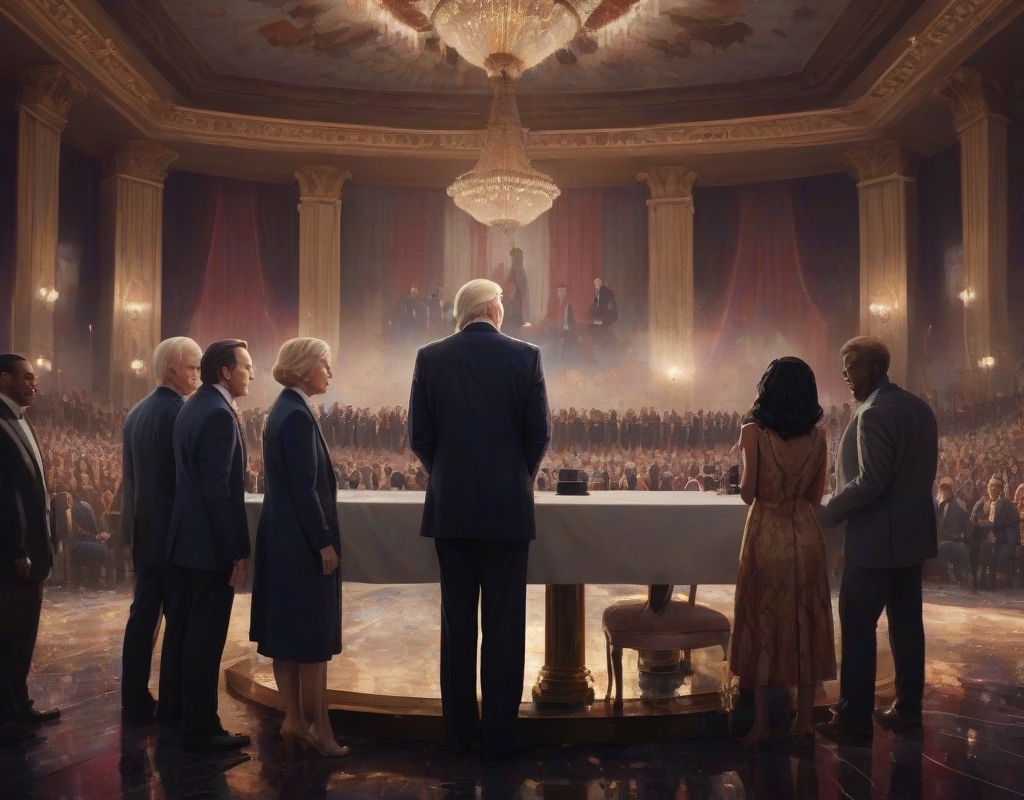The 2024 Presidential Election marked a significant moment in American history, particularly impacting the entertainment community deeply invested in its outcomes. The unexpected result of Vice President Kamala Harris losing the bid drew a spectrum of emotional and potent reactions from various prominent figures in Hollywood. These reactions not only showed their personal stakes but also highlighted the broader implications of the election results on American democracy.
Renowned author and outspoken political commenter, Stephen King, took to social media to share a poignant metaphor about democracy, likening it to a fragile item susceptible to damage. He quoted, “There’s a sign you can see in many shops that sell beautiful but fragile items: LOVELY TO LOOK AT, DELIGHTFUL TO HOLD, BUT ONCE YOU BREAK IT, THEN IT’S SOLD. You can say the same about democracy.” This reflection by King mirrors deeply entrenched fears about the erosion of democratic values, reminiscent of challenges seen during the civil rights era and the enhanced political tensions of recent times.
Historically, such reflections have played a crucial role in mobilizing public opinion to protect the integrity of democracy. Experts recognize these analogies as vital in reminding the populace of their role in sustaining democratic practices.
The response from the entertainment sector was immediate and intense. Christina Applegate, known for both her acting and activism, publicly shared how the election results personally affected her, expressing concerns about potential setbacks on women’s rights. She recounted a poignant moment of her daughter crying over the results, symbolizing deep fears about the future of women’s autonomy. This incident highlighted a palpable concern about the rollback of reproductive rights, a contentious topic in the current political climate.
Throughout history, entertainers have often played pivotal roles in political movements, wielding their influence to echo and shape public sentiments. The emotional leverage celebrities hold can transform personal concerns into powerful public narratives.
In a stark expression of frustration, rapper Cardi B, who had actively supported Harris’s campaign, posted a video on her social media platforms addressing her dismay particularly directed towards certain conservative states. Although the video was subsequently removed, her use of natural disasters as metaphors for political retribution spoke volumes about her dissatisfaction with the political division. This candid reaction aligns with a long history of artists using their platforms to voice political discontent, tracing back to anti-war songs during the Vietnam era.
Lili Reinhart, also deeply moved by the election outcomes, expressed solidarity with women who have accused the opposing candidate of misconduct. Her statement underscored the disheartening reality they face, seeing wide support for someone they accused of grave acts. Reinhart’s stance resonates with the growing discourse on power dynamics and accountability driven by movements like #MeToo.
Jamie Lee Curtis offered a more inspiring response amidst the disappointment, encouraging continued activism and support for marginalized groups. Her message, “One fight at a time. One protest at a time,” echoed the robust spirit of historical civil rights movements, reinforcing the ongoing necessity for active societal engagement.
Billie Eilish used her platform to underscore the ongoing struggle, particularly framing it as a “war on women.” Her concise yet powerful message resonated with both historical and contemporary feminist movements, emphasizing the need to guard against regressive changes to women’s rights.
The variegated reactions in Hollywood to Kamala Harris’s election loss reveal a tapestry of reflection, frustration, solidarity, and activism. These celebrity viewpoints not only personalize the political results but also frame them within larger discussions about the state of democracy and societal rights.
As the ramifications of this election continue to unfold, the collective voice of the entertainment industry remains a potent force in democratic discourse. Their public platforms serve not only as reflections of prevalent sentiments but also as catalysts for civic engagement and societal change. This continued intersection of celebrity influence with political activism challenges both the public and those in the limelight to persist in navigating the complex landscape of modern political and cultural intersections. As history shows and current events affirm, their roles are instrumental in shaping and responding to the evolving narratives of American democracy.




